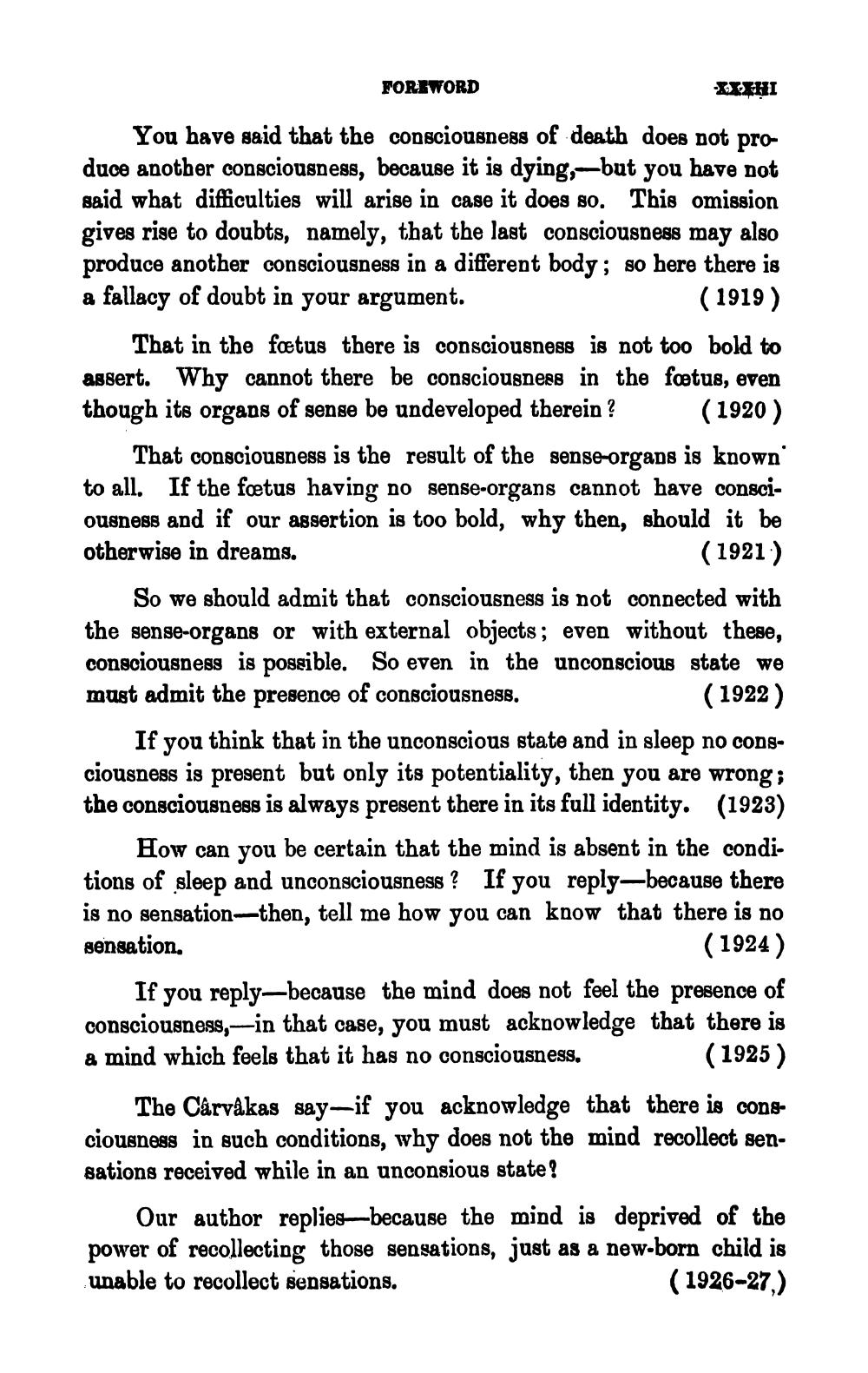________________
FOREWORD
XXXHI
You have said that the consciousness of death does not produce another consciousness, because it is dying,-but you have not said what difficulties will arise in case it does so. This omission gives rise to doubts, namely, that the last consciousness may also produce another consciousness in a different body; so here there is a fallacy of doubt in your argument. (1919)
That in the fœtus there is consciousness is not too bold to assert. Why cannot there be consciousness in the foetus, even though its organs of sense be undeveloped therein ? (1920)
That consciousness is the result of the sense-organs is known' to all. If the foetus having no sense-organs cannot have consciousness and if our assertion is too bold, why then, should it be otherwise in dreams. (1921)
So we should admit that consciousness is not connected with the sense-organs or with external objects; even without these, consciousness is possible. So even in the unconscious state we must admit the presence of consciousness. (1922)
If you think that in the unconscious state and in sleep no consciousness is present but only its potentiality, then you are wrong; the consciousness is always present there in its full identity. (1923)
How can you be certain that the mind is absent in the conditions of sleep and unconsciousness? If you reply-because there is no sensation-then, tell me how you can know that there is no sensation. (1924)
If you reply because the mind does not feel the presence of consciousness,-in that case, you must acknowledge that there is a mind which feels that it has no consciousness.
(1925)
The Cârvakas say-if you acknowledge that there is consciousness in such conditions, why does not the mind recollect sensations received while in an unconsious state?
Our author replies because the mind is deprived of the power of recollecting those sensations, just as a new-born child is unable to recollect sensations.
(1926-27,)




